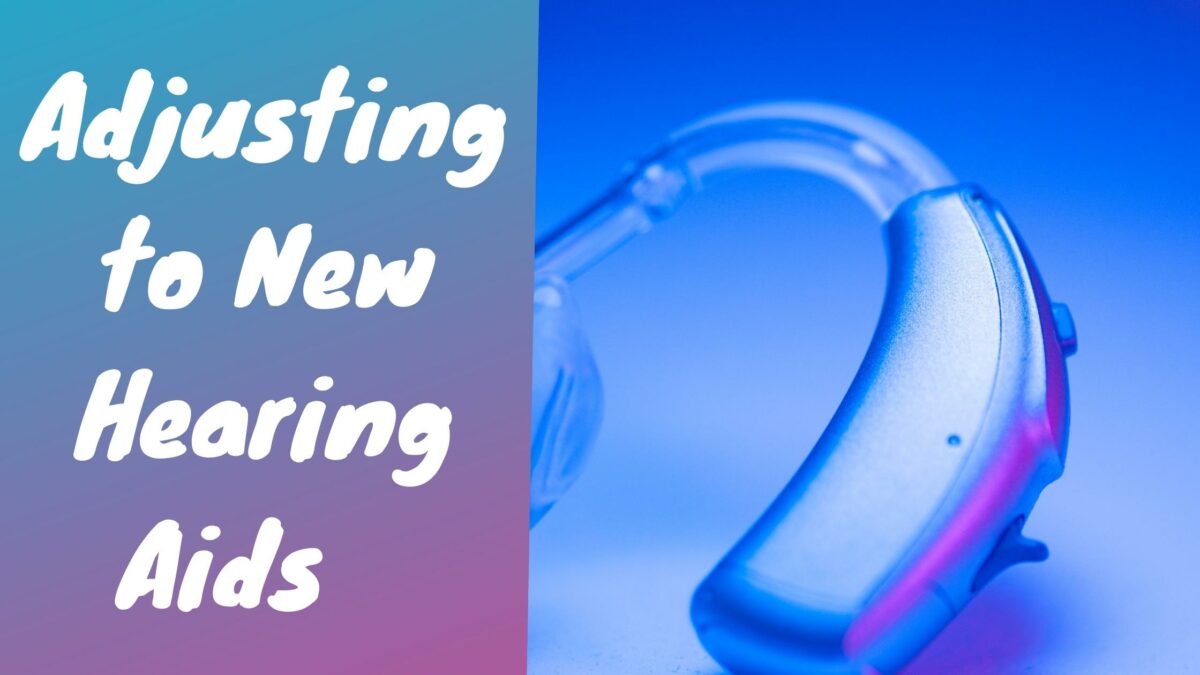It is important to know that there is an adjustment period with hearing aids. Unlike a pair of glasses that instantly enhance your vision, it takes the auditory system time to adjust to hearing in new ways. You will likely experience sounds that you haven’t heard in quite some time. The brain has to get familiar with processing these new stimuli and this kind of retraining takes time.
This includes getting reacquainted and comfortable with sounds like your own voice, chewing, faint sounds in your living space etc. Absorbing new sounds can feel strange and overwhelming initially. But after some time, your hearing will adapt to your new hearing aids and strengthen sound quality and communication. There are a few ways you can better adjust to your hearing aids, including the following:
1. Start By Wearing Hearing Aids at Home
When you first wear your new hearing aids, especially for first-time wearers, it can feel odd or unusual. Also hearing new sounds, while exciting, can also feel like sound overload. So wearing your device in the most comfortable setting can really help you integrate them into daily life more easily. Starting by wearing them at home allows you to navigate your own space while learning this new device.
Also, a great way to warm yourself up to your new hearing aids is by wearing them in a quiet space. This enables you to start absorbing and becoming more familiar with faint sounds like rain, household appliances, cars that are outside etc. This useful strategy allows you to gradually hear newer sounds which helps retrain your auditory system.
2. Practice with Family & Friends
Another useful way to adjust to your hearing aids is by having conversations with loved ones. Hearing and communicating with new hearing aids can feel awkward and you may experience difficulties at first. So practicing with friends and family can help you feel more comfortable and supported through this adjustment period. You may feel more at ease to ask for feedback and explore ways to maximize your hearing during this conversation.
A few helpful strategies for effective communication with hearing aids that you can practice are:
-
- face the speaker which allows you to lip read (helpful for identifying individual words and following a conversation) as well as access other nonverbal cues like hand gestures, facial expressions etc.
- avoid multitasking so you can be fully focused and present for the conversation
- reduce any background noise by lowering volume on electronic devices, avoiding loud settings, closing windows etc.
3. Be Patient
It is important to anticipate the adjustment period so that you can set your expectations. It takes time to become completely comfortable with this new way of hearing. Your brain is also learning new sounds and keeping up with processing new stimuli constantly. This is especially the case if you have been experiencing hearing loss for quite some time. You may hear simple sounds from the refrigerator or a ticking clock which can feel intense at first. This can feel tiring and overwhelming at first so be sure to take breaks and be patient. Giving yourself the time and space to get acclimated to your new hearing aids can significantly help this transition.
4. Engage in Listening Exercises
Really simple listening exercises can also be useful in retraining your auditory system and getting comfortable with your hearing aids. Try applying close captioning when you are watching a show or movie. This allows you to read the words that you are hearing which is a great way for your brain to make connections between sounds and language. Another way to do this is to listen to the audio of a text that you are reading or reading the text aloud. Doing this simultaneously also allows your brain to make important connections. It also allows you to get familiar (and comfortable) with hearing the sound of your voice which may sound different with hearing aids.
5. Note Any Challenges
Be sure to write down and keep track of the challenges that you have. This could include hearing specific types of sounds or hearing in specific environments. This is important feedback to share with our team as you adjust to your new hearing aids!
We’re here to help! If you have any questions or concerns with your new devices, contact us today.

